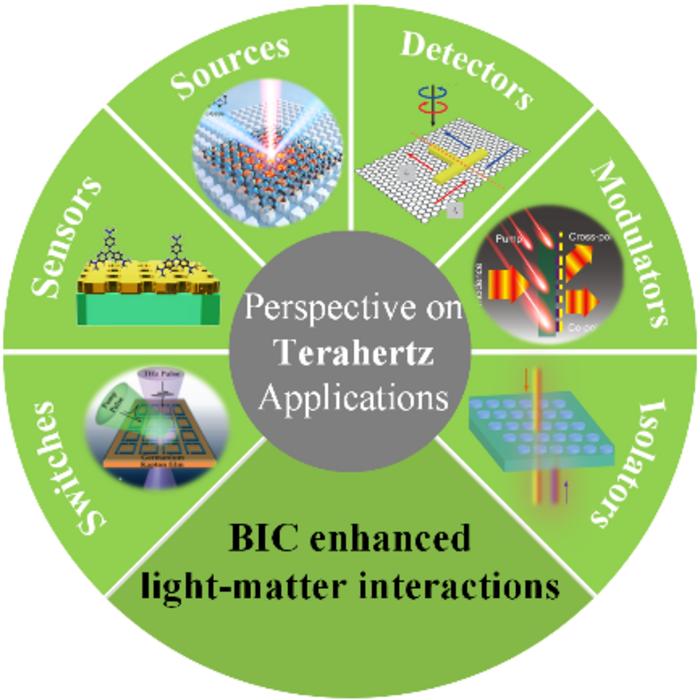The interactions between light and matter are a central research focus in the field of photonics. Resonant cavities with high quality factors (Q) are capable to confine light effectively and exhibit ultra-long radiation lifetimes, making them essential for applications such as lasers, modulators, nonlinear optics, and quantum computing. Traditional methods for light confinement involve microring resonators, Bragg microcavities, photonic crystals, and so on. Bound states in the continuum (BICs) are unique nonradiative modes that exist within the radiation continuum, above the light line. However, their intrinsic optical fields can still be confined within the structure without leaking into free space, thereby exhibiting an infinite radiative Q. BICs provide a generalized approach to achieve extremely high-Q resonant cavities, offering a powerful mechanism for enhancing the light-matter interactions. Over the past few decades, BICs have been established in various photonic structures, and the fundamental physical mechanisms have been greatly explored.

Credit: Ultrafast Science
The interactions between light and matter are a central research focus in the field of photonics. Resonant cavities with high quality factors (Q) are capable to confine light effectively and exhibit ultra-long radiation lifetimes, making them essential for applications such as lasers, modulators, nonlinear optics, and quantum computing. Traditional methods for light confinement involve microring resonators, Bragg microcavities, photonic crystals, and so on. Bound states in the continuum (BICs) are unique nonradiative modes that exist within the radiation continuum, above the light line. However, their intrinsic optical fields can still be confined within the structure without leaking into free space, thereby exhibiting an infinite radiative Q. BICs provide a generalized approach to achieve extremely high-Q resonant cavities, offering a powerful mechanism for enhancing the light-matter interactions. Over the past few decades, BICs have been established in various photonic structures, and the fundamental physical mechanisms have been greatly explored.
In the past few years, abundant articles have reported various applications of BICs in different areas. While there are also several review articles on photonic BICs providing guidance and summarizing progress in recent years, the perspectives of BICs in terahertz photonics were overlooked. Recently, Prof. Longqing Cong’s team at Southern University of Science and Technology published an online review article entitled “Recent advances and perspective of photonic bound states in the continuum” in the journal Ultrafast Science. This article provides a perspective of BICs on applications in terahertz photonics after summarizing the most recent results and interesting applications of photonic BICs, which will update the literature library in this rapidly developing field.
The review starts by discussing interpretations of BICs from two perspectives, namely, the far-field interference of multipoles and the near-field properties of topological charges. Recent works on manipulating the far-field radiation properties of BICs through engineering topological charges are then highlighted. Subsequently, the most recent developments in applications are categorized into chiral light and vortex beam generation, harmonics generation, sensors, and lasing. Finally, a comprehensive overview of the current progress of BICs in terahertz regime is summarized, and their potential applications in terahertz generation, detection, modulation, sensing, and isolation are envisioned.
The recent advancements in BICs, both in theory and applications, have profound implications for engineering resonances in photonic devices. As the field of photonics continues to expand in industrial applications, BIC-enabled photonics is expected to remain a highly active research area, driving further progress not only in the classical optical regime but also in quantum photonics.
This work “Recent advances and perspective of photonic bound states in the continuum” was published in the journal Ultrafast Science. This work was supported by the National Natural Science Foundation of China (Award No.: 62175099), Guangdong Basic and Applied Basic Research Foundation (Award No.: 2023A1515011085), Stable Support Program for Higher Education Institutions from Shenzhen Science, Technology & Innovation Commission (Award No.: 20220815151149004), and startup funding of Southern University of Science and Technology.
Introduction of authors’research group
Longqing Cong is an associate professor in the department of electrical and electronic engineering at Southern University of Science and Technology. His main research interests include: terahertz photonics, metasurfaces, photonic crystals, terahertz applications, and ultrafast terahertz spectroscopy. He has published over 50 peer-reviewed journal papers with more than 5200 citations and h-index of 35. He serves as a long-term reviewer for over 40 journals, and in the editorial board of journal Ultrafast Science (Science Partner Journal) and Chinese Journal of Lasers. He is an IEEE senior member, and was awarded the gold medal of “MRS Singapore best PhD thesis”, the World’s Top 2% Scientists by Elsevier, Shenzhen Youth WuSi Medal, and Best Young Scientist by IEEE Photonics Society. For more information of Longqing Cong’s information, please refer to:
https://faculty.sustech.edu.cn/?tagid=conglq&iscss=1&snapid=1&orderby=date&go=1&lang=en
The research group is continuously recruiting postdoctoral fellows and doctoral students in the areas of metamaterials, terahertz photonics, etc. For more information, please refer to: https://job.cingta.com/detail/292713.
Journal
Ultrafast Science
DOI
10.34133/ultrafastscience.0033
Method of Research
Experimental study
Subject of Research
Not applicable
Article Title
Recent Advances and Perspective of Photonic Bound States in the Continuum
Article Publication Date
23-Jun-2023




